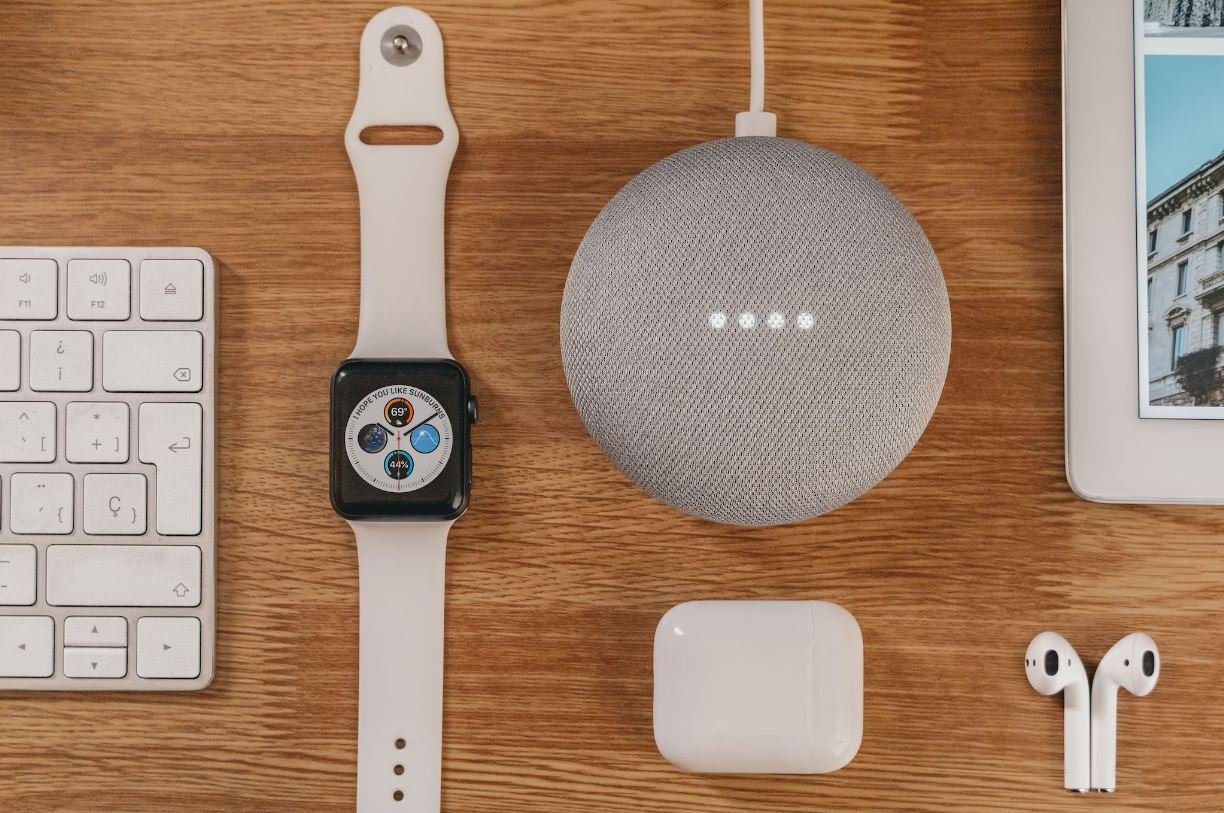Podcast Conversation Questions
Introduction
Podcasts have skyrocketed in popularity in recent years, providing a platform for people to share their thoughts, ideas, and expertise through audio discussions. One of the key elements in a successful podcast is engaging conversations that captivate the listeners. As a podcast host, it’s important to ask the right questions to keep the conversation flowing smoothly and to ensure interesting and valuable content for your audience.
Key Takeaways
- Asking engaging questions is crucial for a successful podcast.
- Well-thought-out questions help the conversation flow smoothly.
- Podcast questions should be tailored to the guest and topic.
- Open-ended questions encourage in-depth answers.
- Listen actively to the guest’s responses to ask follow-up questions.
Types of Questions to Ask
When preparing for a podcast interview, it’s helpful to have a variety of questions to cover different aspects of the topic and keep the conversation dynamic. Here are some types of questions you can incorporate into your podcast:
- Open-ended questions: These encourage the guest to provide detailed and thoughtful responses, leading to deeper conversations.
- Personal experience questions: Ask the guest to share personal stories or experiences related to the topic, adding a personal touch to the conversation.
- Opinion questions: Encourage the guest to share their opinions on relevant topics to spark interesting discussions and viewpoints.
- Reflective questions: Prompt the guest to reflect on past events or lessons learned, providing insights and wisdom to the audience.
- Fun and creative questions: Add a lighthearted tone to the conversation by asking unexpected or unconventional questions that showcase the guest’s personality.
Preparing Your Questions
Before the podcast, spend time researching your guest and the topic to ensure you ask relevant and engaging questions. Here are some tips to help you prepare:
- Research the guest’s expertise, previous work, and achievements to develop specific questions tailored to their background.
- Create an outline or structure for the conversation to ensure a logical flow and cover different aspects of the topic.
- Consider the interests of your target audience and include questions that would resonate with them.
- Anticipate potential follow-up questions based on the guest’s initial answers to ensure a smooth and continuous conversation.
- Practice active listening during the podcast to ask insightful follow-up questions and keep the conversation engaging.
Utilizing Conversation Techniques
In addition to asking thoughtful questions, utilizing conversation techniques can enhance the overall podcast experience for both the guest and the audience:
- Building rapport: Establish a connection with the guest early on by engaging in small talk and making them feel comfortable.
- Active listening: Pay close attention to the guest’s responses, providing validation and showing genuine interest in their thoughts and opinions.
- Paraphrasing and summarizing: Repeat or summarize the guest’s answers to ensure clarity and show that you comprehend their perspective.
- Asking follow-up questions: Probing deeper into the guest’s response by asking follow-up questions can lead to valuable insights and further discussion.
- Allowing pauses: Embrace moments of silence to give the guest time to gather their thoughts or elaborate on a particular topic.
Sample Podcast Conversation Questions
To give you an idea of what podcast conversation questions may look like, here are a few examples:
| Topic | Question |
|---|---|
| Entrepreneurship | What inspired you to start your own business, and what challenges did you face along the way? |
| Travel | Can you share a memorable travel experience that completely changed your perspective? |
| Health and Wellness | What are some practical tips for maintaining a healthy lifestyle, especially for those with busy schedules? |
Conclusion
No matter the topic or the guest, asking engaging questions is crucial for a successful podcast. Tailor your questions to the guest and topic, listen actively to their responses, and utilize conversation techniques to keep the conversation flowing. By doing so, you’ll create captivating and insightful podcast episodes that resonate with your audience.

Common Misconceptions
Paragraph 1
One common misconception people have about podcast conversation questions is that they are only useful for improving language skills. While it’s true that using conversation questions can be a fantastic way to practice and enhance language abilities, podcasts can also serve many other purposes. They can be a source of entertainment, a means of staying informed on current events, or a platform for in-depth discussions on various topics.
- Podcasts can provide entertainment through interesting storytelling.
- Podcasts can help listeners stay up-to-date with the latest news and information.
- Podcasts can offer insightful discussions on a wide range of topics.
Paragraph 2
Another misconception is that podcast conversation questions are solely for language learners. While they can indeed be helpful for language learners to practice and improve their skills, anyone can benefit from engaging in podcast conversations. Podcasts are a valuable tool for sparking thought-provoking conversations, stimulating critical thinking, and encouraging active listening. People from all backgrounds and fluency levels can participate and gain insights from these discussions.
- Podcast conversations can stimulate critical thinking and intellectual growth.
- Everyone, regardless of language fluency, can actively listen and engage in discussion.
- Podcast conversations can provide a platform for diverse perspectives and insights.
Paragraph 3
There is also a misconception that podcast conversation questions are limited in scope and only cover shallow or trivial topics. However, podcasts cover a vast array of subjects and can delve deeply into complex and meaningful discussions. From politics and science to philosophy and culture, podcasts can tackle a wide range of topics and provide listeners with valuable insights and perspectives.
- Podcast conversation questions can explore complex and thought-provoking subjects.
- Listeners can gain valuable insights from podcasts on various topics.
- Podcasts can expose listeners to diverse and thought-provoking perspectives.
Paragraph 4
Some people mistakenly think that podcast conversation questions are too rigid and only involve a standard set of questions without room for personal input. However, podcast conversation questions can serve as a foundation for engaging and dynamic discussions. They can spark personal anecdotes, opinions, and reflections, allowing individuals to share their unique experiences and contribute to the conversation in a meaningful way.
- Podcast conversation questions can serve as a starting point for personal stories and experiences.
- Individuals can express their opinions and reflections during podcast conversations.
- Podcast conversation questions can lead to engaging and dynamic discussions.
Paragraph 5
Lastly, there is a misconception that podcast conversation questions are primarily for passive listening, where individuals simply absorb information without actively participating. While it is true that not all podcasts encourage listener participation, many podcasts are designed to promote active engagement and interaction. They might include pauses for reflection, prompts for responses, or even call-ins from listeners.
- Podcasts can prompt listeners to actively engage with the content.
- Listeners can participate in the podcast conversation through responses or call-ins.
- Podcasts can encourage active listening and engagement.

Podcast Listenership by Age Group
According to a survey conducted by Nielsen, the listenership of podcasts varies across different age groups. The table below displays the percentage of individuals within each age group who listen to podcasts on a regular basis.
| Age Group | Percentage of Podcast Listeners |
|———–|——————————–|
| 18-24 | 35% |
| 25-34 | 45% |
| 35-44 | 40% |
| 45-54 | 30% |
| 55+ | 20% |
Top Podcast Genres
Podcasts cover a wide range of genres, catering to diverse interests and preferences. The table below ranks the most popular podcast genres based on listenership.
| Genre | Percentage of Podcast Listeners |
|———————|——————————–|
| True Crime | 25% |
| News and Politics | 20% |
| Comedy | 15% |
| Society and Culture | 10% |
| Business | 10% |
| Technology | 8% |
| Science | 7% |
| Self-Improvement | 5% |
Podcast Listening Frequency
How often people listen to podcasts can vary significantly. Some individuals are avid listeners, while others tune in occasionally. The table below showcases the distribution of podcast listening frequency among respondents.
| Frequency | Percentage of Listeners |
|——————|————————|
| Daily | 35% |
| Multiple times a week | 40% |
| Once a week | 15% |
| A few times a month | 7% |
| Rarely or never | 3% |
Podcast Duration Preferences
Podcast episodes can range from a few minutes to several hours, allowing for diverse content experiences. The following table highlights the preferred duration of podcast episodes among listeners.
| Duration | Percentage of Listeners |
|———————-|————————|
| 20-30 minutes | 40% |
| 30-60 minutes | 35% |
| Less than 20 minutes | 15% |
| 1-2 hours | 7% |
| More than 2 hours | 3% |
Podcast Listening Platforms
Podcasts are accessible through various platforms, ranging from dedicated podcast apps to popular streaming services. The table below presents the distribution of podcast listening platforms.
| Platform | Percentage of Listeners |
|—————|————————|
| Spotify | 30% |
| Apple Podcasts| 25% |
| Google Podcasts| 20% |
| Overcast | 10% |
| Stitcher | 8% |
| Other | 7% |
Preferred Podcast Episode Format
Podcast episodes can take different formats, such as interviews, storytelling, or panel discussions. The following table showcases the preferred episode formats among listeners.
| Episode Format | Percentage of Listeners |
|—————-|————————|
| Interviews | 40% |
| Storytelling | 25% |
| Panel Discussions| 20% |
| Solo Shows | 10% |
| Other | 5% |
Podcast Listener Demographics – Gender
The demographics of podcast listeners can provide insights into the gender distribution of the audience. The table below presents the percentage of listeners based on gender.
| Gender | Percentage of Listeners |
|———|————————|
| Male | 55% |
| Female | 45% |
Podcast Listener Demographics – Education Level
Educational attainment can influence podcast listenership, as individuals with higher levels of education are more likely to engage with podcasts. The table below displays the distribution of podcast listeners according to their education level.
| Education Level | Percentage of Listeners |
|————————|————————|
| High School or Less | 15% |
| Some College | 30% |
| Bachelor’s Degree | 35% |
| Master’s Degree | 15% |
| Doctoral Degree | 5% |
Podcast Listener Demographics – Occupation
A person’s occupation can also influence their podcast listening habits. The table below showcases the occupation distribution among podcast listeners.
| Occupation | Percentage of Listeners |
|—————–|————————|
| Professional | 35% |
| Student | 25% |
| Homemaker | 15% |
| Retired | 10% |
| Other | 15% |
In conclusion, podcasts have become a popular form of entertainment and information sharing across various age groups. The listener base includes a diverse range of demographics, reflecting the wide appeal of this medium. With different genres, episode formats, and listening platforms to choose from, podcast enthusiasts have a plethora of options to tailor their listening experience.
Frequently Asked Questions
Question
What is a podcast?
A podcast is a digital audio or video file that is made available for streaming or downloading on the internet. It is a form of online media that allows users to listen or watch the content at their convenience.
Question
How do I start a podcast?
To start a podcast, you’ll need to decide on a topic, obtain the necessary equipment for recording and editing, and select a hosting platform to publish your episodes. Once you have these elements in place, you can start recording and releasing episodes for your audience to enjoy.
Question
What are some good podcast conversation questions?
Good podcast conversation questions vary depending on the topic and guest. However, some general conversation starters include asking about the guest’s background, their opinions on current trends or events, their advice on a particular subject, or their personal experiences related to the podcast’s theme.
Question
How long should a podcast episode be?
The ideal length for a podcast episode can vary depending on the topic and audience preferences. However, a typical podcast episode runs between 30 minutes to an hour. It’s important to keep the content engaging and concise while considering your target audience’s attention span.
Question
Can I monetize my podcast?
Yes, it is possible to monetize your podcast. There are several ways to generate revenue from your podcast, including advertising, sponsorships, crowdfunding, merchandise sales, and paid subscriptions. However, it’s important to build a significant audience and create valuable content before pursuing monetization options.
Question
How do I attract listeners to my podcast?
To attract listeners to your podcast, you can promote it through various channels such as social media, your personal network, guest appearances on other podcasts, blog collaborations, and utilizing search engine optimization techniques. Additionally, creating compelling and relevant content will naturally draw in more listeners over time.
Question
What equipment do I need for podcasting?
Basic podcasting equipment includes a microphone, headphones, an audio interface, and audio editing software. Additional equipment such as a pop filter, microphone stand, and soundproofing materials can enhance the audio quality. However, the specific equipment requirements may vary depending on your budget and recording setup.
Question
How often should I release new podcast episodes?
The frequency of releasing new podcast episodes depends on your production capabilities and the expectations of your audience. Some podcasts release new episodes weekly, while others opt for a biweekly or monthly schedule. Consistency is key, so it’s important to set a realistic schedule that you can maintain consistently.
Question
What makes a successful podcast?
A successful podcast combines a unique and compelling concept with high-quality production values. It also involves engaging content, consistent release schedules, effective promotion, and building a loyal listener base. Additionally, fostering a genuine connection with your audience and adapting to their feedback are crucial elements of a successful podcast.
Question
Can I have guests on my podcast?
Absolutely! Having guests on your podcast can bring fresh perspectives, expertise, and diversity to your show. It can also widen your reach and attract new listeners who are interested in your guests’ expertise or experiences. You can invite guests from various fields or even feature other podcasters to collaborate and cross-promote each other’s shows.


Leave a Reply